Introduction
The Human Right and Peace Center (HURIPEC) at Makerere University in Uganda hosted Training Institute on Access to Medicines, Human Rights and Intellectual Property. The Program sought to provide a foundation on which there was further targeted research- both basic and policy oriented in the area of access to medicines, human rights and intellectual property. The participants received focused training on the effects of applying a human rights frame work to access to medicines law and policy including;
- Intellectual property, competition, medicines regulation (covering pricing and availability measures) and trade law frameworks;
- Deal with the most urgent AEM issues affecting the region, in particular, anti-counterfeiting legislation (proposed and established), medicines stock out and quality of medicines actually available;
- Examine the potential regional initiatives necessary to promote access to medicines in the EAC region, and critically consider those policies that may promote research and development into neglected diseases and conditions for which there are few medicines.
Ultimately, the objective of the program is to create a cadre of legal practitioners and activists fully equipped with basic skills in access to medicines, human rights and intellectual property in order to promote greater policy attention, scholarship and activism to issues of crucial importance, literally dealing with questions of life and death.
A comprehensive reading pack containing key legal documents and contemporary scholarship was provided to participants to equip them with a tool kit for future reference in their advocacy and policy work. After the course, participants were able to engage in a variety of strategies to increase access to medicines in the context of an increasing focus on intellectual property protection in their individual countries, including strategic litigation by bringing cases related to access to medicines in their jurisdictions.
The teaching program was arranged in modules focusing on specific areas of Access to medicines, Human Rights and Intellectual property. The two-week course involved a theoretical component to equip participants with a broad conceptual basis on issues related to AEM, as well as a second more practical and focused component dealing with topical areas of AEM which were of immediate concern to activists in the region.
Facilitators were experts who specialize in the areas of international trade, intellectual property, access to medicines and human rights. Among them were legal and human rights practitioners drawn from both the Intellectual Property and Human Rights sectors, as well as from Academia and the non-government community, particularly Health Rights Activists.
Eligibility
The teaching program were conducted in English and was targeted at lawyers, activists, policy makers and other professionals engaged with issues of balancing human rights and obligations under the international intellectual property regime.
Participants are also drawn from academia, civil society organizations (CSOs) and the public service. The course was also open to students in their penultimate year at law school as well as those undertaking graduate study, with a view of enabling such graduates appreciate the importance of this growing area of legal scholarship and practice, while also equipping them with skills that enabled them to bring some influence to bear on the different spheres of legal concern which were opened once their careers began.
